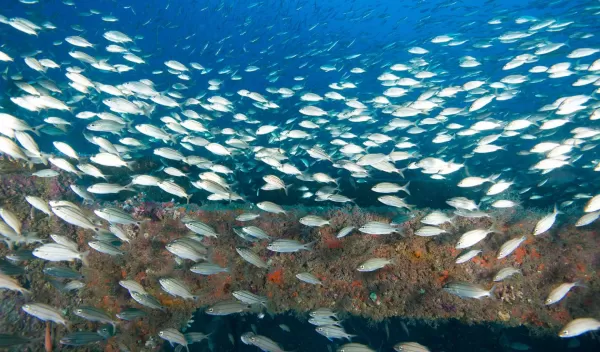
Shipwrecks off North Carolina coast harbor tropical migrants
Tropical and subtropical fish are taking up residence on shipwrecks and other sunken structures off the North Carolina coast. This pattern may continue or even accelerate in coming years given predictions of warming oceans, a new study co-led by Duke University scientists suggests.
"The artificial reefs created by these structures may be acting as stepping stones for fish that are moving northward and living at the edge of their geographic range, or beyond it, in search of suitable habitat," said Avery B. Paxton, a visiting scholar at the Duke University Marine Laboratory.
One of the study’s most surprising findings is that tropical and subtropical fish observed off North Carolina exhibit a strong preference for hanging out on human-made structures versus natural rocky reefs found nearby.
The preference for artificial habitats suggests that networks of the human-made structures -- which are already commonly found up and down the East Coast and in other waters worldwide -- could act as underwater corridors that help the fish reach the habitats they need to survive.
Paxon is the lead author of the study and a 2016 National Science Foundation Graduate Research Fellow.
